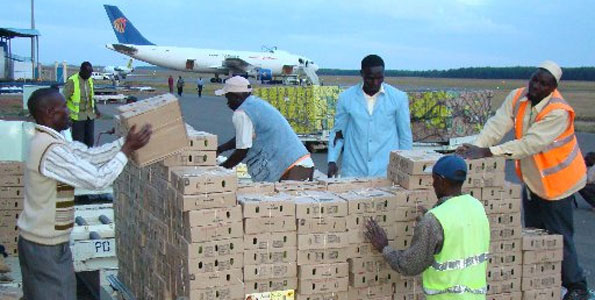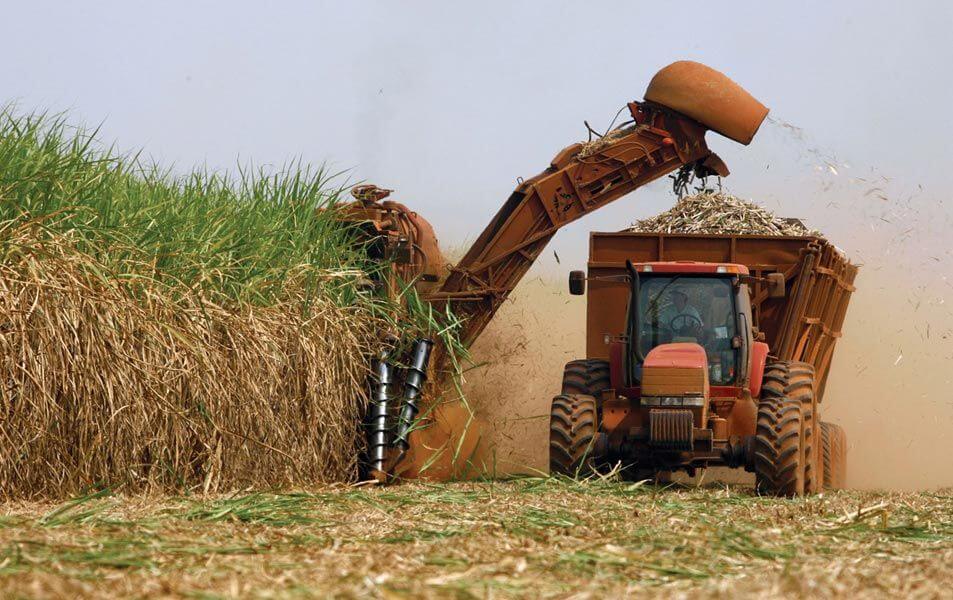Sugar sector buckles under lowly-priced imports
ZIMBABWE’s sugar producers have warned the decision by the Government earlier this year to allow low-priced imports into the country to counter shortages in the market, will have far-reaching consequences on viability, employment and healthcare.
Duty-free sugar imports, industry players said, could upset the cart not just for institutional investors in sugar production led by the two largest producers Hippo Valley Limited and Triangle Limited, but up to 354 000 individual growers who depend on the industry in Zimbabwe’s lowveld.
Just the two largest industry players, Hippo and Triangle, reportedly employ close to 18 000 people.
Further, several hundreds of thousands of other people are employed directly and indirectly in the downstream industries, including the refining businesses.
According to the National Competitiveness Commission (NCC) the sugar sector’s production capacity target for the 2022/23 farming season was 414 000 tonnes against an actual performance of 396 541t.
This represents a 4 percent variance below the target.
NCC said in its Value Chain Progress Report released last month that the sector failed to meet the set production target due to a plethora of challenges, which included stiff competition from the non-fortified sugar imports, where permits to import approximately 23 000 tonnes of sugar were issued.
This will have a negative impact on yield and investment in the next farming season, the statutory body noted.
Amid a price spiral for goods and services in Zimbabwe from May this year, as the country’s domestic currency took a battering on the parallel market, the Government issued Statutory Instrument 120, which allowed duty-free importation of 10 basic commodities, including sugar.
The resurgent price increases, which saw Zimbabwe entering hyperinflation in June, came against rapid depreciation of the domestic currency, which was blamed on the excess liquidity of a currency long haunted by low public confidence.
Zimbabwe Sugar Association (ZSA) chairman, Muchadeyi Masunda, said in an interview that local producers were finding it difficult to withstand competition against low-priced imports, especially from lower-cost producers like Brazil and India.
But the cheap imports have also been from nearby South Africa and Eswatini.
Masunda said the sugar imports coming into Zimbabwe, especially shipments from Brazil, were literally being dumped onto the domestic market. Producers, including new farmers the Government allocated land to after the land reform programme at the turn of the millennium, cannot beat the external competition.
Apart from weighing on the viability of operations, Masunda said the decision by the Government to allow duty-free import of sugar violated legal provisions on the importation of fortified foods, which is informed by World Health Organisation (WHO) guidelines.
“The milling companies play an important role in the sense that once the raw sugar has been delivered to the mills, the raw sugar (brown sugar) is then sent to the refining companies like the Zimbabwe Sugar Refinery to meet the local needs for sugar,” he said.
The producers meet local sugar requirements for table and bottling sugar used by domestic household consumers, bakeries, and beverage companies.
“Historically, as a country, we have been a net exporter of sugar. We produced sugar to meet demand consumption locally and we have always exported historically to the then-European markets; the precursor to the EU.
“And we have also always exported to the United States of America,” he said. In the USA, “We carved out a niche market. As we speak we have so far exported just under 20 000 metric tonnes of sugar to the United States.
“At the end of July, beginning of August 2023, we shipped 25 000 metric tonnes of sugar to the United Kingdom and Northern Ireland. That gives an idea of the pivotal role, that the sugar industry has played in this country,” Masunda said.
Zimbabwe was also beginning to make major inroads into the Kenyan and Democratic Republic of Congo markets. Viability issues emanating from the cheap imports, Masunda said, represented major hurdles in this regard.
He said it was strange that the Government would adopt decisions such as it did earlier this year, which fly in the face of obvious economic gains and guidelines issued by global institutions such as WHO with little hindsight of the socio-economic consequences.
In terms of health, it was determined by WHO that to counter certain prevalent diseases globally and to prevent epidemics certain foods should be fortified with Vitamin A at source, and sugar is one among many that include mealie meal, flour, cooking oil and salt.
“All the sugar that has to be marketed in Zimbabwe has to be compliant with legislation that was promulgated in Zimbabwe following the WHO guidelines.
Masunda pointed out that it was also worrying that some of the imports displacing local brands from the market, especially refined sugar from Brazil, which is largely produced for ethanol production, were simply being dumped into the market at grossly discounted prices and without the recommended health fortifications.
“What that does is that it undermines the local industry. It is not gonna be easy, especially for the new farmers, because they are not going to be able to go back to the (farm) land because they would have not realised the kind of money that they should have realised if it was not for the unfair competition that the sugar industry is facing from the imports,” he said.
Correspondence to the relevant Government ministries regarding the imports, including in terms of health deficiencies, has not been responded to, Masunda said.
The viability issues caused by the cheap imports, Masunda said, would also negatively impact several other areas including the income for the Zimbabwe National Water Authority (ZINWA) for which sugar farmers are key customers, and the National Railways of Zimbabwe (NRZ), which is the major transporter of Zimbabwe’s exports via the port of Beira in Mozambique.
Masunda also stressed that the local sugar industry was already battling high costs of production due to steep water and power tariffs, which put them in an invidious situation in their efforts to ward off the unfair competition the cheap imports.
-ebusinessweekly









